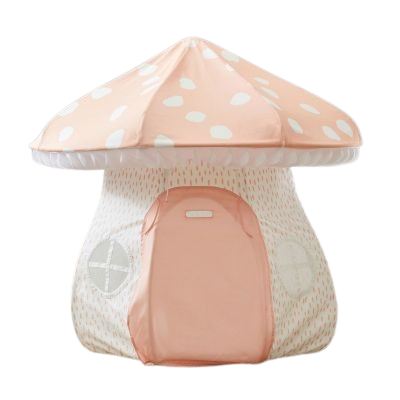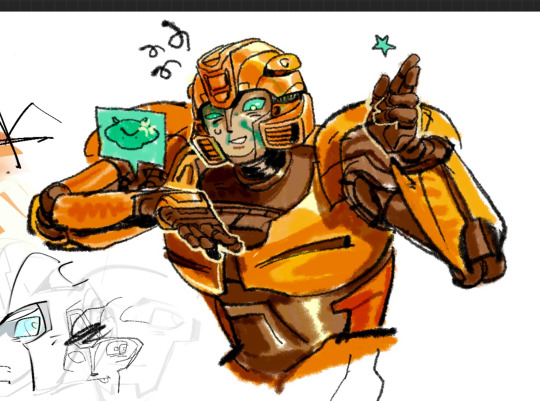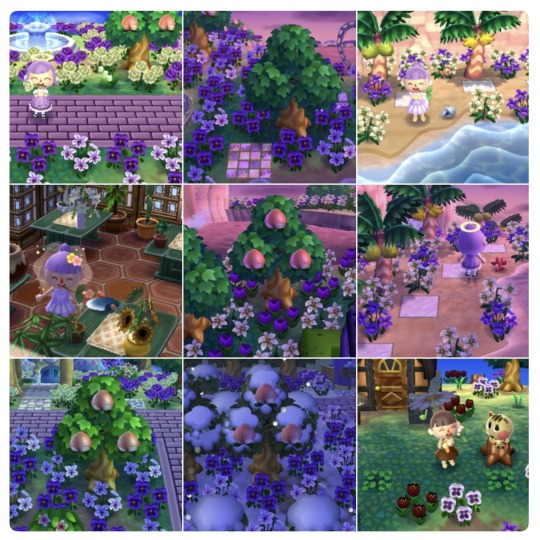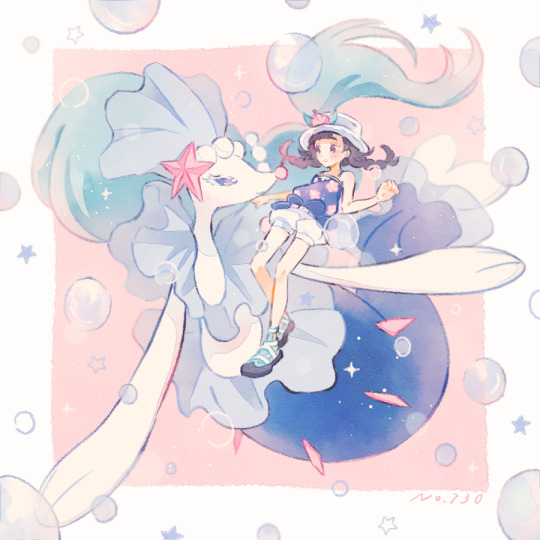Hiya ! Nice to meet you ! Call me Flower or Rose or anything to do with flowers . Physically I'm 20 but in my head I'm still just me . Child of God . Forever learning and growing . Permaregressor / permachild / age stunted . Tougher than I seem so don't mess with me . Trying to be kinder .
Last active 60 minutes ago
Don't wanna be here? Send us removal request.
Text
@grand-zammy









june 24 is international fairy day! (1/3)
good faeries,bad faeries | fairies of the forest | flower fairies collection
toadstool | mushroom play tent | fairy wings
utensils & pouch | fairy alphabet plate | stickers
9 notes
·
View notes
Text
I just blocked a blog for literally the pettiest reason ever nd I'm not even that sorry for it

#its not sumthing serius enuff to add to my dni but if i didnt block them i wldve started a fight in the comments of their moodboard#its such a dumb reason for me to b mad#btw it was completely harmless#worried of hurting ppl's feelings if i say what it is that i blocked#ill jus say its relatwd to unicorns
0 notes
Text

i think he's fun
1K notes
·
View notes
Text
On Mytho and Rue’s Self Journey, to Why They Ended Up Together
Or an Analysis I did in a comment that I thought was too much to not put on Tumblr as well
Mytho’s journey is about self acceptance and humanity. Prince Siegfried was a character written by Drosselmeyer to be perfect and selfless, but in that perfection and selflessness he unintentionally became obsessed with it, rejecting his humanity to become the perfect prince. You can see it highlighted in season two more, how when he gets possessed by Raven’s blood all it really does is make him selfish and want to be loved by all (when the core trait of Prince Siegfried is loving without wanting love in return). But realistically speaking, when you love you want to be loved back—that’s the healthy human nature of love. In family, in friends, in lovers—if you’re loving and not being loved back, that’s cruel and unhealthy. What the Raven’s blood did is literally only strengthen the bitterness and selfishness in a human heart that he had pushed and discarded when he was a prince, to uphold the selfless and perfect prince persona. Further evidence of this is when his selfish form is presented in front of the heart shards guarding Gold Crown’s walls—the most protective and loyal shards, strong enough to defend the town—they are disgusted. They are disgusted at Siegfried’s imperfection, and selfishness, that that they ask Tutu that if Siegfried does not return to normal (his perfect princely self) to basically just destroy him. They would rather die than be imperfect and selfish—those two things being what humans are. This mindset is damaging, and what led to his suicide attempt in shattering his heart in the first place, which he almost replicates in the final fight had Ahiru not stopped him in desperation. The Raven has always craved Prince Siegfried, specifically because of his ‘pure’ heart. In reality, that could mean that the Raven (a culmination of cruel bitterness, the darkness in human’s hearts and what is seen as impure) desired Siegfried who rejected those parts of his own humanity. The Raven is interested in the man who tries so hard to reject his darkness and humanity, it entices the Raven. That why only when Raven’s blood flows within him does he truly become complete, forced to face and eventually accept the human parts of himself he shut away.
The fictional fairy tale prince then accepted his humanity. So in choosing to love Rue—whose pure love that accepted and loved him even when he was the full culmination of hateful and selfish human emotion, he accepted another human side of himself. Because humans don’t love all, they love one person selfishly and romantically—and he does so with Rue. His journey starts him off as a doll-like, perfect fairytale prince with an originally self destructive mindset to the human Prince Siegfried who accepts his humanity, the good and the selfish, and makes the decision to live and love one person selfishly, the woman who loved him when he was the most impure and imperfect.
Rue’s own journey is about realizing she can be loved and love normally. And I say ‘realized’ instead of ‘learn’ intentionally, which I’ll explain in a bit. Rue, unlike Mytho, was very familiar with human emotion. Things like doubt, affection, pride, joy, fear, curiosity—that is why she was always afraid. Afraid that when the imperfect Mytho, lost of his emotions, regains them that he will leave her—because once he regains those emotions, he will be human, and be able to abandon her. Keep in mind, that this is a direct result of the Raven’s abuse and teachings—that Prince Siegfried can only [love her] because he doesn’t have the ability to [not love]. She, who is the Raven’s daughter, is ugly—disgusting, evil, cruel, and dispicable that no one can love her but the man who doesn’t physically have the ability to. Keep in mind that Rue is human—so the Raven’s teachings and what she knows of human emotions mix. Even when she locked away the memories of being the Raven’s daughter, those teachings still haunt her and reflects how she treats Mytho in the beginning—she loves him, but knows that without the feeling of love, he can’t love her back. But she’s fine with that—because as long as he’s by her side, not abandoning her, she’ll be content. This can be seen in flashbacks, of little Rue being afraid and upset when Mytho leaves her to go to Fakir—because he is leaving her, abandoning her—the one man the Raven said physically couldn’t. The fear of being unloved, of being abandoned, defines her as a result of the Raven. It’s a terrifying prospect really—because if the one man, said to being physically unable to [reject] or [not love someone], rejects and doesn’t love you? How could you be loved by anyone then? Even your supposed father says it—that he can only love you if you’re loved by the prince. This fear, fear of being unloved and being abandoned, is the pinnacle of human emotion. Because it’s that fear that strings along the other emotions—loneliness, contempt, happiness, sadness, grief—it is such a focus, because that one fear concerning love so heavily affects the others.
But the reality of it all is that Rue has always been loved—the Raven’s teachings just made her unable to see it. As just Rue, the human ballerina Rue, she was always admired, respected—only as the Raven’s daughter, as Kraehe, did people begin to despise and become afraid of her. She didn’t want to be Kraehe at first, was fearful even, until Fakir instills it in her that she is a foul Raven—so she begins to cruelly play the part fully, believing it. That’s what everyone says after all—that’s what her Father says, and how could he be wrong? So she stops being Rue, stops acting what she thought Rue was—a human girl who loved ballet, who could be admired and loved easily, a human girl who is normal.
And Rue believes that Kraehe is her true self—the impure, disgusting Raven that everyone hates who cannot physically be loved, but in reality she was human—all along, she was human. She could’ve been loved her whole life, lived a normal life, but the Raven took that away from her. She was never Kraehe—Kraehe, the Kraehe persona was never the real her. The warm, the easily emotional, the self assured Rue—that was her all along, and Ahiru could see it. When she attempts to take Femio’s heart, it breaks her momentarily because when she becomes Kraehe he still is infatuated with her—and that fundamentally breaks her, because someone other than Mytho is ‘loving’ her. She couldn’t take his heart in the end and took it as how he didn’t actually love her, but the reality was that in that moment he did. He loved the ‘imperfect’ Raven Kraehe, which shouldn’t be possible other than the prince. I think this happens with both Femio and Autor, and both encounters fracture her—because when she asks if Autor loves her, as Rue, and he echoes it, that truly cracks her because it breaks the concept the Raven had drilled into her—that she can’t be loved outside of the prince. She, as Rue, was loved by someone other than the Prince. She could be loved freely as a human. He was wrong—and that’s why when she finds out the truth it breaks her so much because it meant she could always be loved by anyone and would’ve. She wasted so much time, was so awful because she believed herself to be the Raven’s daughter, but she was a human.
A lot of people say they didn’t want Rue to end up with Mytho because she needs to discover herself and be loved before Mytho, and while I agree, I also disagree. Only because, Rue was always aware of how she could be loved and admired. She knew the difference between Rue and Kraehe, and knew who she was as Rue. That’s why it breaks her so much, because when she finds out the truth, she knows exactly who Rue is and how much Rue was loved and was heartbroken because that’s who she always was—and because of the Raven, thought she wasn’t. She didn’t need to explore herself as Rue, or find love as Rue, because she already knew. That’s why it broke her so much.
And when Mytho physically changes into a crow, she despairs—because in her foolishness, as a result of the Raven’s grooming and what she thought she was supposed to act as Kraehe—she had done this to him. She had been harming the person she loved for so long, turned him into a crow—something disgusting, something ugly, something dispicable that no one can love ever again. In her foolishness, in the Raven’s deceit, she turned the one who was supposed to be loved by all into something unlovable. But she still loves him—even in his worst state, she loves him. And this time, she doesn’t expect to be loved in return—how could she? It’s ironic, how when she ‘becomes’ human she no longer desires to be loved back. But she still loves him regardless.
While he was at his ugliest, the most hateful, she loved him purely, unconditionally, wholeheartedly, and put herself at risk for his sake. Not even Ahiru/Tutu, when she saw him in such a state, was sure if she could. After all, Tutu and Ahiru’s goal for the whole story was to ‘turn Mytho to normal by returning his heart shards so he can smile’. Not once did she consider if Prince Siegfried, Mytho, could be someone who in his true self could be someone who wouldn’t want to smile. The Mytho she was fighting for was the Mytho who could be positive and genuinely happy, throughout the story falling for him when he’s most prince-like. When Mytho’s negativity and selfishness was empowered by the Raven’s blood, both Ahiru and Fakir were trying so desperately to return him to ‘normal’, never considering that their perception of ‘normal’ Mytho is almost idealized—that what they were returning him to was the prince who in his desperation to be perfect, was constantly willing to destroy himself. I’m sure Siegfried was afraid, afraid of stabbing out his own heart—humans naturally are, but he shunned his feeling of fear away. In order to be selfish, you have to have at least some sort of positive sense of self to retain. So in order to be perfectly selfless, he had to be rid of and reject those selfish parts of himself in order to become perfectly fictional. But Rue by the end was ok with being rejected and dying for the version of the prince who was at his most selfish and unprincely. That is what I believe, the biggest turning point in their relationship, and why Rue and Mytho end up together in the end. Because in Mytho, in Prince Siegfried’s lowest point within the culmination of hateful and selfish human emotion, she loved him wholeheartedly and gave herself up to the Raven in his stead. The Raven, who desires pure and loving hearts, accepted Rue in HIS stead. And it’s that love that gives his positive emotions and sense of self strength. Her pure unconditional love settled his form of raging selfishness and cruelty, bringing him to the balance and control he would have as a human.
The prince learned to accept the humanity he rejected, loving and selfishly choosing Rue, the girl who realized she could love and be loved freely. At the start of their self-destructive imperfect journeys, they went to their happy ever after, completing each other.
11 notes
·
View notes
Text


4 notes
·
View notes
Text

It’s okay. It happened. You don’t have to keep going to that place, you already know what’s there.
we tend to keep going back, replaying it, expecting it to go differently this time. it won’t and that’s okay. it’s okay to be upset about it, it’s also okay to move on. 🤎
1K notes
·
View notes
Text

🪵🌾"Farmers kid" moodboard🌾🪵
///
My girlfriend suggested this one!!! I didn't grow up on a farm technically but I grew up with goats and we grew a lot of our own food in a farm town so it's close enough to be soooo nostalgic <3 I wanted to add a barn swing and a doghouse but I had too many things I wanted to put in!!!!!!
77 notes
·
View notes
Text

Girlre moodboards in every color of the rainbow #4 let's gooooooooo !
Well that was fast ! Apparently I have lots of green pictures saved on my phone prbly cus it's the most common color in nature but no idea I had the ipod . Hope it doesn't ruin th vibe

10 notes
·
View notes


























